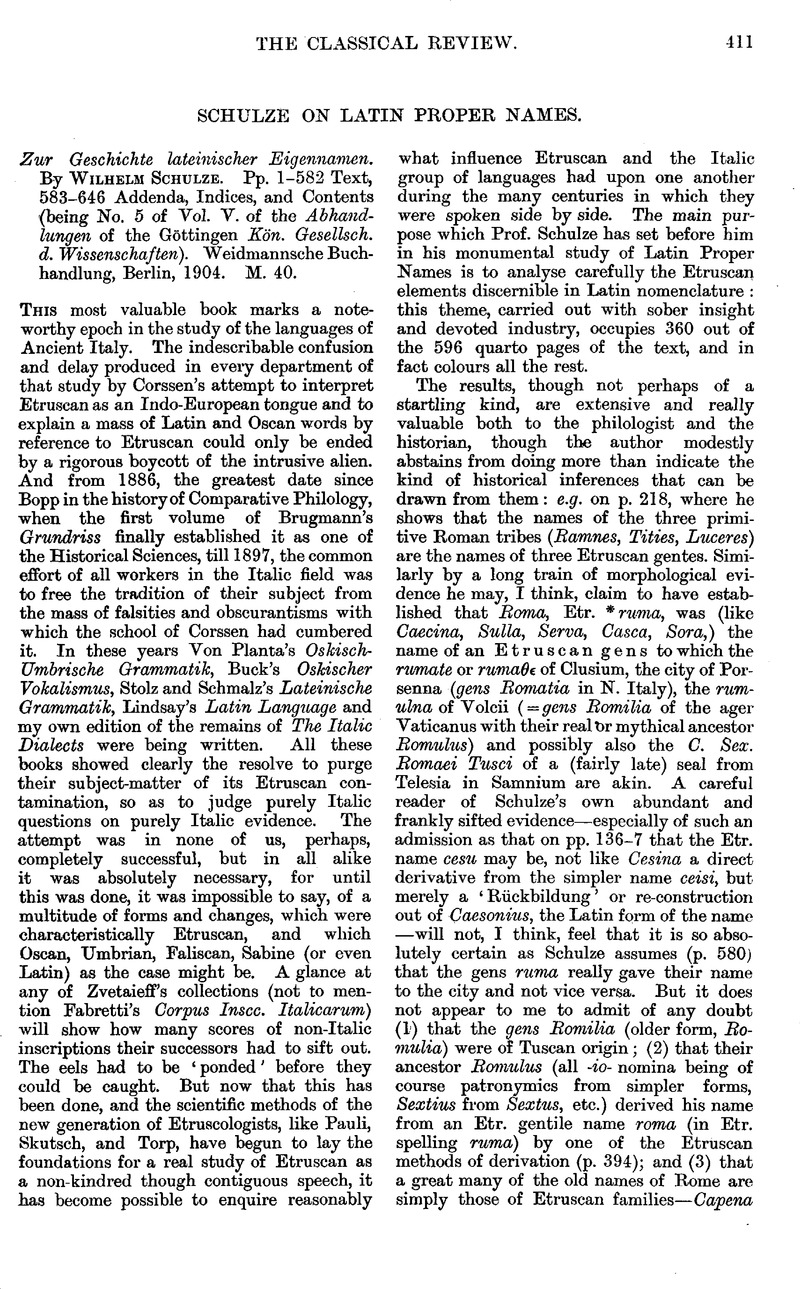Published online by Cambridge University Press: 27 October 2009

page 412 note 1 Le due strati di popolazione Indo-Europea dell' Italia primitiva in vol. ii. of the Atti of the Historical Congress at Rome, 1903.
page 412 note 2 But far from complete. Why, for instance, do they omit all reference to the Oscan forms Dekkiis, etc., discussed at two pages' length (see below)? And is it the Index or the book which omits all consideration of the form Etruscus (as contrasted with Tuscus)?
page 412 note 3 Other very doubtful points to me are the extraordinary (p. 106) denial of the identity of Volesus and Volusus (cf. modes-tus : uenus-tus, etc.); the dogmatic separation (p. 90) of Umb. Hoier and Hude (why not as Iouii: Ioui?); and the apparent assertion (p. 372) that such nicknames as ‘leg’ (Sura), ‘forest’ (Silva), ‘window’ (Fenestella) could not have been given (save by unintentional coincidence) in such a country as Italy.
page 412 note 4 The least happy feature of the book is the tone in which Prof. Schulze regularly speaks of his predecessors, on whose labours his own work is based. Of all these Bücheler alone is mentioned without direct censure. And why should a huge treatise on a small department of Latin and Etruscan Grammar ponr contempt on ‘Grammarians.’ and ‘Etruscologists’ (pp. 90 and 106) ? Is our toil-some profession in any danger of standing too high in the eyes of the world at large?
page 413 note 1 It is impossible to mention all the interesting topics raised : the original namelessness of women in Italy p. 50 ; family-gods (123); the Etruscan origin (e.g. 274) of apparently Latin aspirates (Gracchus, Matho); the ‘Lager-Rinder’ (60); the Kelts in Spain (27) ; the self-assertion that appears in the name via Appia (instead of via Claudia which custom enjoined, p. 512) are some that have struck me most.